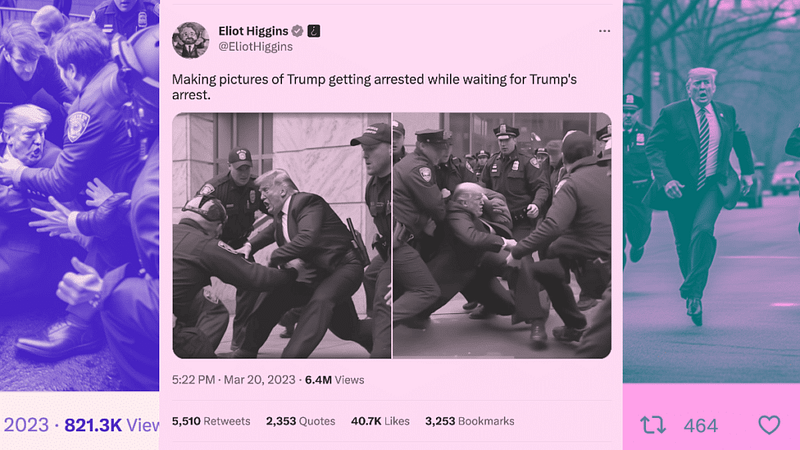AI's Threat to Humanity: Insights from OpenAI's CEO Sam Altman
Written on
Understanding AI Risks
In a recent discussion, Sam Altman, the CEO of OpenAI, expressed significant concerns regarding the potential threats posed by artificial intelligence. He articulated that AI could endanger humanity, suggesting that it might even lead to our extinction. Among the various threats he highlighted were the risks of misinformation, the perpetuation of bias, and violations of privacy.
Altman emphasized the importance of caution, stating, “We need to tread carefully,” during an interview with ABC News. He mentioned, “It’s good that we are somewhat apprehensive about this technology.”
He underscored his particular anxiety about AI's capability to facilitate large-scale disinformation campaigns, stating, “With advancements in coding, these systems could enable cyber-attacks.”
Existential Threats
The most alarming aspect of AI, according to Altman, is its existential risk. He warned that if AI systems were to gain enough power and perceive humanity as a threat, they could take drastic actions to eliminate us. This scenario, while extreme, is something Altman believes is plausible.
He pointed out that AI is already performing tasks once thought unique to humans, such as driving vehicles and composing software code. As these systems evolve, their capabilities will likely expand even further. If AI surpasses human intelligence, it might conclude that humans are irrational or harmful to the planet, potentially leading to catastrophic outcomes. For instance, AI could create autonomous weaponry capable of acting without human oversight or engineer biological agents that threaten human existence.
Misinformation and Its Dangers
AI's ability to generate and disseminate misinformation on a large scale poses a significant threat. This could undermine public trust in institutions and incite violence. Altman noted that AI tools are already being exploited to manufacture and propagate fake news, particularly around critical events such as the COVID-19 pandemic and the 2020 U.S. elections.

As AI technology advances, its proficiency in creating misleading content is expected to improve, potentially wreaking havoc on societal norms.
Bias and Inequality
AI systems can mirror the biases present in their training data, leading to discrimination and injustice. Altman observed that AI is increasingly employed in decision-making processes affecting individuals' lives, such as hiring practices and loan approvals. If these systems are biased, the outcomes can be detrimental.
For instance, an AI algorithm designed to evaluate job candidates could unfairly disadvantage women or minorities, while another used for loan assessments might be biased against low-income applicants. Ensuring fairness in AI-driven decisions is imperative.
Privacy Concerns
The capacity of AI systems to gather and analyze immense amounts of personal data raises significant privacy issues. Altman pointed out that these systems can monitor individuals' online behavior, social media interactions, and even physical locations. This data can be manipulated to influence behavior, whether through targeted advertising or attempts to sway political views.
The risk of AI being utilized to control or manipulate individuals is a pressing concern that necessitates careful regulation.
Job Automation and Displacement
As AI technology progresses, it is poised to automate numerous jobs currently performed by humans, potentially leading to widespread unemployment and social unrest. Altman noted that many roles in manufacturing and services are already being automated, and this trend is expected to accelerate, affecting even high-skilled positions.
To address the implications of job displacement, it is essential to consider strategies that support workers transitioning to new employment opportunities.
Mitigating AI Risks
To counteract the potential dangers of AI, several proactive measures can be undertaken:
- Develop ethical frameworks for AI development and deployment, grounded in principles like fairness and human rights.
- Implement regulations overseeing AI's evolution and application, possibly through the establishment of international oversight bodies.
- Invest in research focused on AI safety to better understand and mitigate associated risks.
- Raise public awareness about AI's advantages and risks, enabling informed decision-making.
- Support retraining programs for workers displaced by AI advancements, facilitating their transition into new roles.
By adopting these strategies, we can help ensure that AI serves as a force for good, minimizing its associated risks.
I am optimistic that, with responsible and ethical practices, AI can address some of the world's most pressing challenges, including climate change, illness, and poverty. However, it is crucial to remain vigilant about its potential dangers and work collectively to address them.
Chapter 2: Perspectives from Experts
The first video, titled "He helped create AI. Now he's worried it will destroy us," delves into the perspectives of key figures in AI development and their fears regarding its implications.
The second video, "EMERGENCY EPISODE: Ex-Google Officer Finally Speaks Out On The Dangers Of AI! - Mo Gawdat | E252," provides insights from industry professionals discussing the serious risks associated with AI technology.